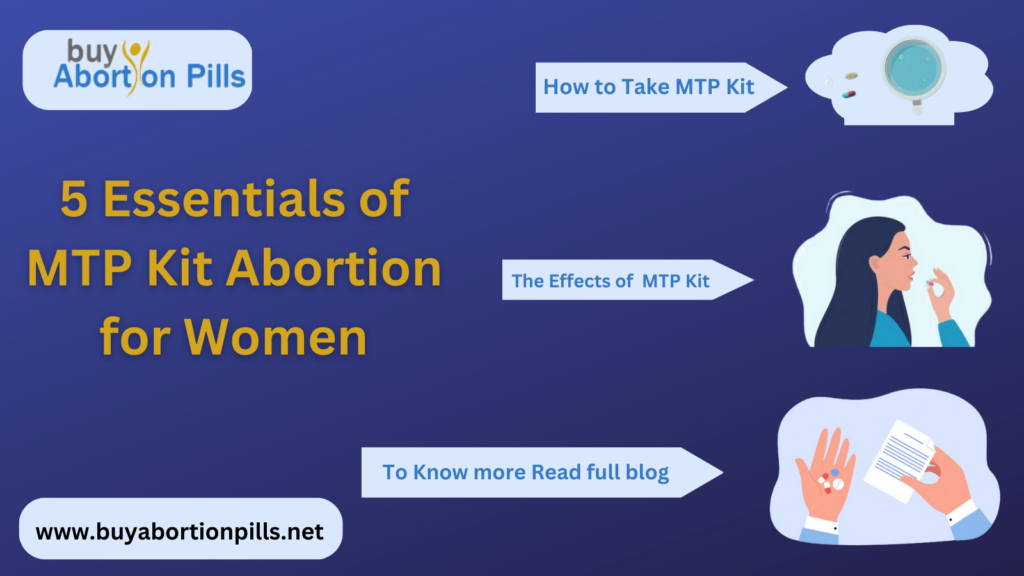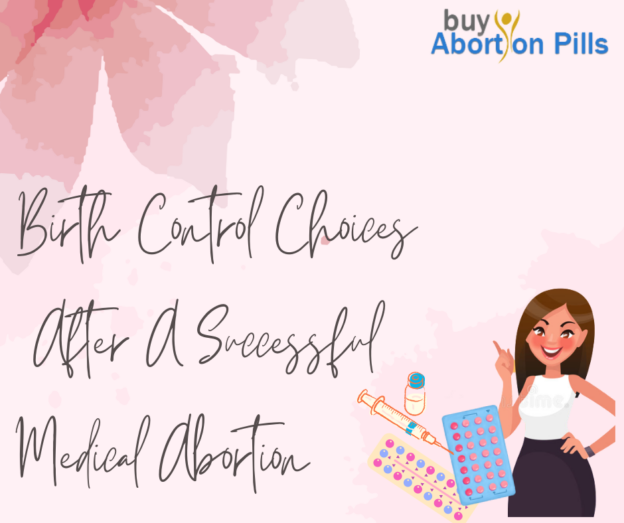
MTP Kit is a non-invasive treatment for an unplanned pregnancy. You can buy MTP Kit online, and get Mifepristone and Misoprostol pills in one pack. The pills are best used for early pregnancy within the gestation age of up to 9 weeks. This combination method helps to remove the pregnancy portions from the womb without you having to get hospitalized or anesthesia.
So, you save on your expenses a lot as compared to the invasive method of pregnancy termination. You can buy MTP Kit online with fast shipping, if you need the pills in an emergency, especially when nearing the mark of 9 weeks of gestation. The sooner you use the medicine during your pregnancy, the better it will be.
In this post, we will talk about some of the important things to know about the MTP Kit. The facility to buy MTP Kit online with overnight delivery, with other benefits.
1. How to Take MTP Kit Pills?
After you buy Abortion Pill Kit online, firstly, use the Mifepristone 200mg pill orally with water on day 1. Do not break, chew, or powder the pills. You have to administer Misoprostol pills after 24 to 48 hours afterward. In the buccal method of consumption. put all the Misoprostol tablets under the tongue or place 2 pills each in your cheek cavities for 30 minutes. And after the pills melt, orally consume the contents with water.
In the vaginal method of administration. place one pill after the other deep inside your vagina after washing your finger thoroughly. Then wait for 30 minutes laying down so that the uterus is able to absorb the melted pills.
2. How Do the Pills Work?
The MTP Kit buy online option is available for every person who is over 18 years of age and with an intrauterine pregnancy. The Mifepristone medicine suppresses the pregnancy hormone progesterone to remove the fetus from the uterus wall by shedding the uterine lining. Do remember that as the pregnancy goes beyond 5 weeks, you will need a greater number of Misoprostol pills to successfully terminate your pregnancy.
In the order MTP Kit online. The use of Misoprostol 4 x 200mcg pills is to expel the pregnancy parts from the womb through heavy vaginal bleeding. You can use one MTP Kit if your pregnancy is within 5 weeks of gestation. However, 2 MTP Kits are required for a pregnancy that is within 6 to 9 weeks of gestation. When using 2 kits, take 4 pills at once and then give an interval of 3 hours before administering the rest of the 4 pills. If you still do not get bleeding within a few hours, then you may need 4 more pills of Misoprostol.
3. What Are the Effects of Medicine?
Apart from heavy vaginal bleeding and cramps (pain to be managed with a painkiller or application of a hot water bag). You may encounter a few side effects such as nausea, dizziness, vomiting, diarrhea, tiredness, and headache. But these are temporary and go away as the uterus empties. The bleeding also reduces after the pregnancy contents are completely ousted from the womb. You can take antiemetic medicine for nausea. Stay hydrated on water and smoothies, and eat a healthy meal every time for quick recovery.
4. Worldwide Availability of Pills
You can buy MTP Kit online overseas shipping from anywhere and that is what makes the pill procedure popular as well as easily chosen by women. You just need an internet connection and order from BuyAbortionPills, your trustable online pharmacy. We guarantee discretion, privacy, comfort, fast shipping, cost-effective purchase, secured transactions, and Live Chat support 24 x 7, apart from other facilities. You will receive sufficient guidance from our outlet about the medication so that you can self-administer the pills at home.
5. Overnight Shipping of Pills
If you provide a delivery address that is within the United States, then you can choose to get the overnight delivery option. Here, the pills arrive at your doorstep within 2 to 4 business days. Thus, you can buy MTP Kit online in USA and get sufficient time to prepare for necessary supplies. During this time, you can speak to your healthcare provider, and do other essentials before taking the pills.
To Conclude
MTP Kit is a genuine medication pack with abortion pills that will aid you in ending an unintended pregnancy safely within the comfort of your home. Follow the above tips and information to understand medical pregnancy termination more deeply.









